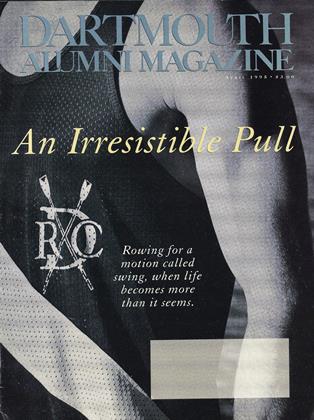Avinash Dixit and Barry Nalebuff,Thinking Strategically (W.W. Norton. 1991)—An excellent introductory book on game theory. Fun to read, non-technical, and full of interesting real-world examples from sports, novels, movies, etc. I highly recommend this book, which I use in my courses.
John McMillan, Games, Strategiesand Managers: How Managers CanUse Game Theory toMake Better Business Decisions (Oxford University Press, 1992) Another non-technical, introductory book on game theory, but specifically geared to management. The title of this book says it all. Highly recommended.
Thomas C. Schelling, The Strategy of (inflict (Harvard University Press, 1980) originally published in 1960, this book is a classic in game theory. Schelling's analysis of the international politics of threat using the notion of "brinkmanship" is incisive.
Robert Axelrod, The Evolution of Cooperation (Basic Books, 1984) This book explains a key result in game theory: that even completely selfinterested people can cooperate in a long term relationship.
Ken Binmore, Fun and Games (Heath, 1992) Despite its name, a book for serious readers who are willing to spend time to actually learn game theory.
Sang-Seung Yi
 View Full Issue
View Full Issue
More From This Issue
-
 Cover Story
Cover StoryDartmouth's Congressman
April 1995 By Timothy J. Burger '88 -
 Feature
FeatureAn Irresistible Pull
April 1995 By Jay Paris -
 Feature
FeatureFathoming the Practical Universe Dan and Whit's
April 1995 By Noel Perrin -
 Article
ArticleThe World's a Game
April 1995 By Karen Endicott -
 Article
ArticleDivers Notes & Observations
April 1995 By "E. Wheelock" -
 Class Notes
Class Notes1992
April 1995 By Jessie W. Levine
Article
-
 Article
ArticleDiscuss Curriculum
May 1944 -
 Article
ArticleAttendance Record Likely For Reunion Weekend
June 1954 -
 Article
ArticleTHE UNDERGRADUATE CHAIR
FEBRUARY 1963 By CARL MAVES '63 -
 Article
ArticleDartmouth Undying
January 1940 By Franklin McDuffee '21 -
 Article
ArticleNorth of Boston
November 1947 By PARKER MERROW '25. -
 Article
ArticleGood Will Ambassador
By TED BREMBLE '56

